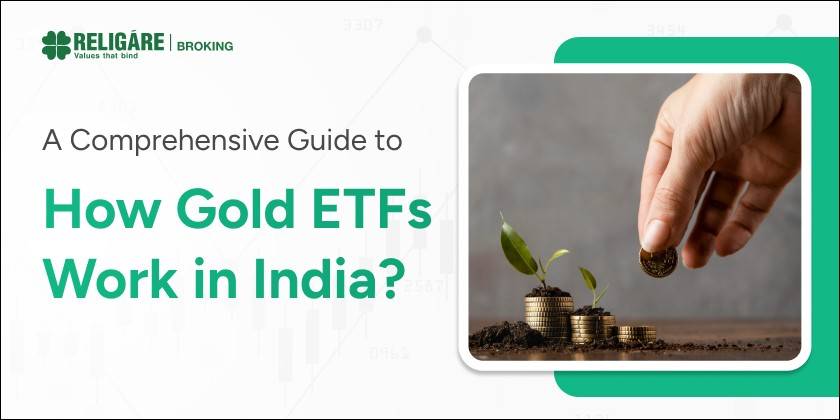An investor who thinks long term does not get distracted by short term market fluctuations or seasonal trends. It is at this point where value mutual funds come into play., These funds are interested in identifying companies that are not doing so well in the market, and so they have an opportunity to invest in a good business that has not yet gotten much attention.
All the necessary information about value mutual funds such as what they are, how they operate, the advantages of investing in them, and how to select the top value funds in India to improve your investment portfolio will be discussed in this article.
Features of a Value Mutual Fund
The main characteristics of a value fund are:
- Funds focused on value investing offer investors the opportunity to hold growth stocks in a more balanced and diversified portfolio.
- The primary goal of these funds is to build wealth for their investors, as well as to aid in the recovery of an economy facing prolonged periods of diminishing demand
What is Value Mutual Fund
A value mutual fund is a type of mutual fund which mainly invests in undervalued stocks- that is, companies whose stocks are trading below their true value. Fund managers seek firms with strong underlying fundamentals, like stable earnings, good management, or prospects, but with low market value today. The idea is that in the long run the market would realise the actual value of these companies, and that their share price will rise, giving investors good returns.
Value funds are considered to be more secure, long-term investment option, since they focus more on stability than rapid growth. They may not yield quick returns as the growth funds would but they can be used to accumulate wealth through lower risk.
Overall, a value mutual fund enables you to buy good companies at discounted prices and then expect slow and reliable growth.
How Does a Value Mutual Fund Work?
Managers of value funds seek out stocks that are undervalued due to a range of factors, one of which is market inefficiency. While a stock may currently be underperforming in the market, fund managers might see underlying growth prospects. The stock price increases when the market assesses the stock’s true value.
The dividend yields on value ETFs are usually greater. The fund managers use a strategic approach in identifying potential stocks that have controlled downside risks.
How Should You Invest in a Value Mutual Fund?
You can invest in value mutual funds by:
- Identify a suitable mutual fund platform.
- Complete your KYC process.
- Register on the platform or app.
- Select a suitable value fund based on your goals.
- Choose between lump sum or SIP based on your strategy.
Why Should You Invest in a Value Mutual Fund?
Users of value funds may look forward to outcomes such as:
Lower Risk
Funds investing in value stocks generally pose minimal risk as they avoid stocks with high expectations. Additionally, they are also low-risk funds that adhere to value investment principles and invest in inexpensive or undervalued stocks in the market.
Growth Factor
Investing in a Value Fund enables investment in the neglected sectors of the economy. This helps in enhancing and gaining the market trust of the low-performing stocks.
Taxation Rules of Value Mutual Funds (Not sure, pls check)
In comparison, the taxes levied on gains from a value fund are:
- Long-Term Capital Gains – 10% tax on gains exceeding Rs.1 lakh annually on units held for more than 1 year (no indexation).
- Short-Term Capital Gains – 15% tax on profits from units held for less than 1 year.
- Dividends – At the individual’s tax slab
What Defines Value Mutual Funds?
An equity fund that concentrates on investing in undervalued companies is called a value mutual fund. Using metrics such as the price-to-earnings ratio and dividend yield, fund managers identify stocks as investment opportunities that are seemingly undervalued.
Value funds specialise in companies that maintain steady growth but have been overlooked for a period, whereas growth funds invest in companies experiencing rapid earnings growth. Such companies usually do well over the long term as the market redistributes the correct price for these companies.
To put it simply, value funds provide an opportunity to buy stocks of good companies that are available at a bargain.
Why Should You Consider Value Mutual Funds in India?
There are a few reasons to invest in value mutual fund schemes in India:
- Long-Term Wealth Creation – Value funds can be an ideal investment avenue for people who want to steadily increase their wealth for a long period of time and also have the patience to wait.
- Lower Downside Risk – The margin of safety tends to be higher when looking at undervalued companies as a whole, especially in comparison to overvalued and speculative stocks.
- Diversification – Value mutual funds invest in various sectors, so investors get value stock exposure that may not be well known.
- Beating Market Cycles – During downturns, undervalued companies usually do better when the market turns around.
Value Funds vs. Growth Funds
Investors often want to know the difference between growth funds and value funds.
- Funds classified as growth funds target companies that are expected to increase their earnings at a rate higher than the market as a whole.
- Value funds, on the other hand, target companies that are undervalued but possess strong growth potential for the future.
During bull markets, growth stocks tend to perform better. However, during volatile and bearish markets, value stocks tend to perform better as they offer a margin of safety.
How to Identify Good Value Stocks?
You might be asking how fund managers find these kinds of companies, especially with value mutual funds looking for neglected companies. Here are some good indicators of value stocks:
- Low Price-to-Earnings (P/E) Ratio – This means the stock is cheaper compared with its competitors.
- Low Price-to-Book (P/B) Ratio – This means the stock is worth less than the company’s intrinsic book value.
- High Dividend Yield – Companies that regularly pay dividends tend to have strong fundamentals.
- Strong Balance Sheet – Financial Strength includes low debt, high cash flows.
While these are good indicators of searching for the top value stocks to invest in now, they are difficult for retail investors to analyse. That is why it is better to invest in a value mutual fund operated by professionals.
Who Should Invest in Value Mutual Funds?
- Long-Term Investors – Ideal for those investors who stay invested for 5-7 years or more.
- Moderate Risk Takers – Value funds are riskier than balanced funds but still less risky than aggressive growth funds, but require patience.
- Diversifiers – Investors who are overly invested in growth or thematic funds stand to gain from investing in value funds, which mitigate the associated risk.
Things to Consider Before Investing
Like all mutual funds, value mutual funds also have considerations:
- Patience Required – It may take some time before value funds fully reflect their actual potential.
- Market Cycles Matter – These funds may underperform in strong bull phases when growth stocks are in the limelight.
- The Fund Manager’s Role – It is very important to choose a fund that has a skilled fund manager because value investing requires in-depth research.
- Long-Term Investment – One must be ready to stay invested for a long time to gain the benefits.








